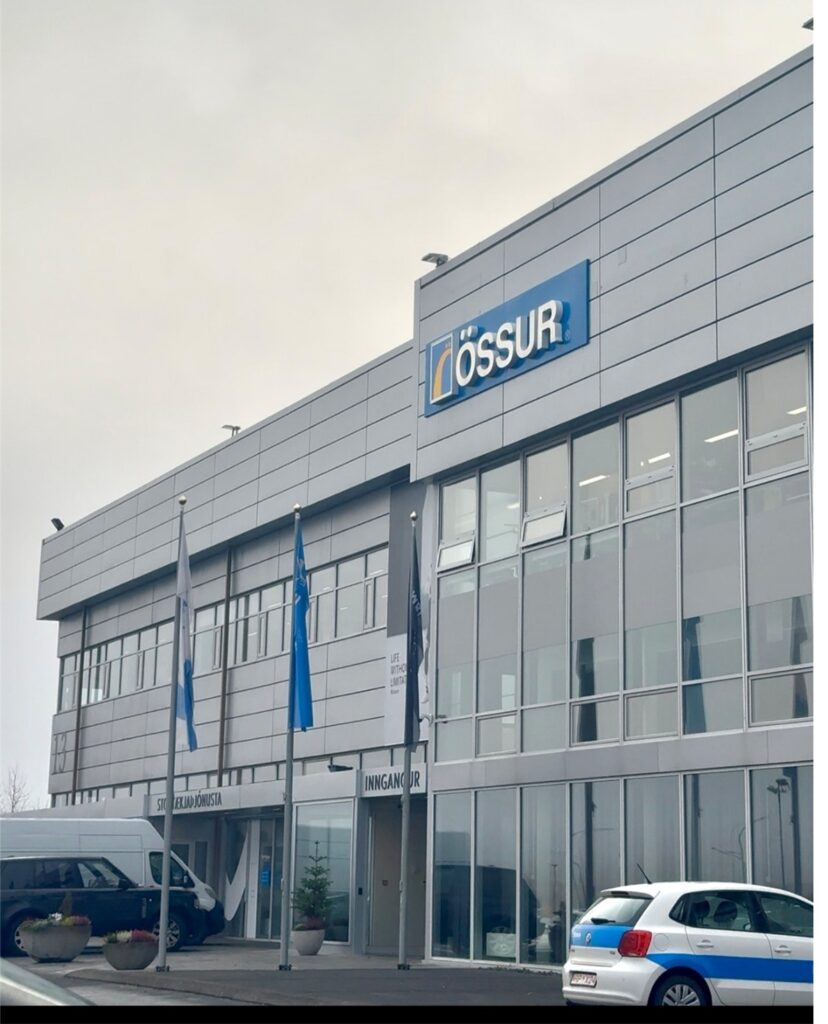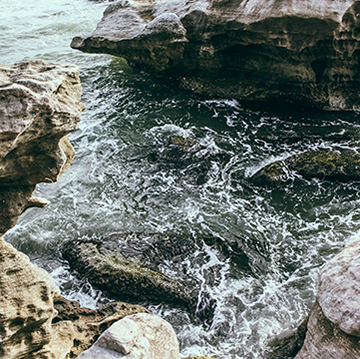A life without limitations, engineered in Iceland
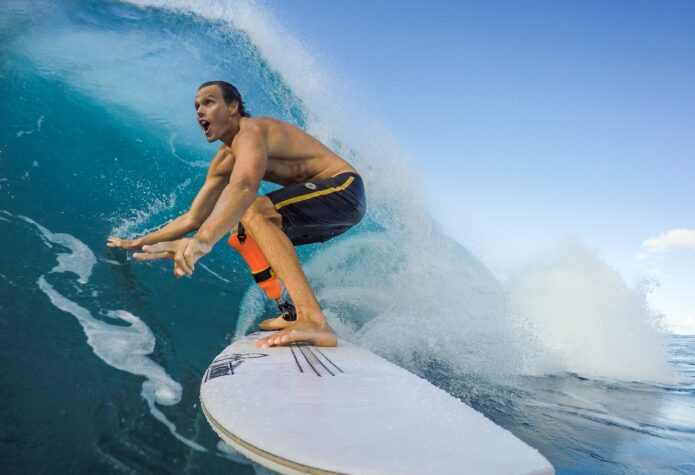
Sometimes, a tourist in Iceland asks their tour bus to make a stop or pulls their rental car over by the highway on the way to the attractions of the Golden Circle. They’ve recognised the name on a grey building: Össur. Drawn by recognition, they step inside to inquire if this is where the prosthetics so fundamental to their life — also now giving them the freedom to move and explore through Iceland’s rugged landscapes—are designed and made.
This is one of many awe-inspiring stories Edda H. Geirsdóttir, VP Corporate Communications at Embla Medical, shares with me when I visit that very same building in Reykjavík on a grey morning, just a week before the year’s first blizzard.
“People walk in and say, ‘I am wearing an Össur leg. I just wanted to see if this is really the place where it came from,’” she says. “Would you necessarily walk into Apple HQ and ask for a tour because you have an iPhone? A prosthetic is such a personal part of you.”
Innovation that begins and ends with people
NIB has provided approximately EUR 200 million in financing to Embla Medical (formerly Össur) since first loan in 2001. The most recent loan, signed in 2025, supports the company’s continued investments in R&D.
Inside Embla Medical’s headquarters, the innovation work feels intimate, more workshop than factory. Of the 700 employees at the Reykjavík site, around 150 engineers and designers work in cross-functional R&D teams, guided by what Edda calls a user-centered design loop. Every prototype is refined through feedback from patients and clinicians, including those visiting the company’s on-site clinic in Reykjavík or one of its nearly 170 ForMotion™ patient care clinics worldwide — all dedicated to expert care that helps people live life without limitations through a personalised care pathway.
Edda picks up a sleek prosthetic from a nearby shelf, showing me the Navii® knee, one of the latest innovations from the company’s flagship Össur prosthetic brand.
“Sometimes innovation isn’t about AI or the latest technology,” she says. “It’s about human details, like making a leg waterproof so someone can stand on two feet in the shower again, walk at the water’s edge with their family, or slip on a pair of flip-flops for the first time in years, thanks to the design of a prosthetic leg. Those may sound like little things, but for the person living it, they’re moments of freedom.”
Today, Embla Medical holds one of the world’s largest patent portfolios related to mobility, with more than 2,100 patents.Keeping R&D largely in Iceland ensures that innovation and intellectual property stay close to home. Here, in a country of just 390,000 people, global breakthroughs are designed and tested.
“Living on this island teaches an element of entrepreneurship and resilience,” says Edda. “You have to find solutions yourself, because you can’t always import them. That’s in our DNA.”
Hope and healing in Ukraine
When war broke out in Ukraine in 2022, Embla Medical halted its operations in Russia and turned its focus toward helping Ukrainian amputees.
“After big disasters, people understandably want to send prosthetics to those in need,” says Edda. “But that’s not enough. We knew we had to build long-term care capacity by training local prosthetists, supporting clinics and making sure patients could get help at home for the long-term.”
Since then, the company’s expert clinicians have trained dozens of Ukrainian prosthetists and supported new rehabilitation centres. This November, it will open its own patient care clinic in Kyiv, offering prosthetic care, training and overall rehabilitation support.
Among the stories that stay with Edda is that of Ruslan Serbov, a Ukrainian soldier who arrived for a training session in Norway after he had lost his leg and spent a month as a prisoner of war in Mariupol.
“He arrived in a wheelchair,” she says. “During training, our colleagues fitted him with a new prosthesis. He stood, took his first steps across the room and then dropped down to one knee and proposed to his girlfriend. He said, ‘I can now do this, and walk at our wedding.’”
“His plan was a heartbreaking testament of the Ukrainian spirit: to marry her… and then return to the war.”
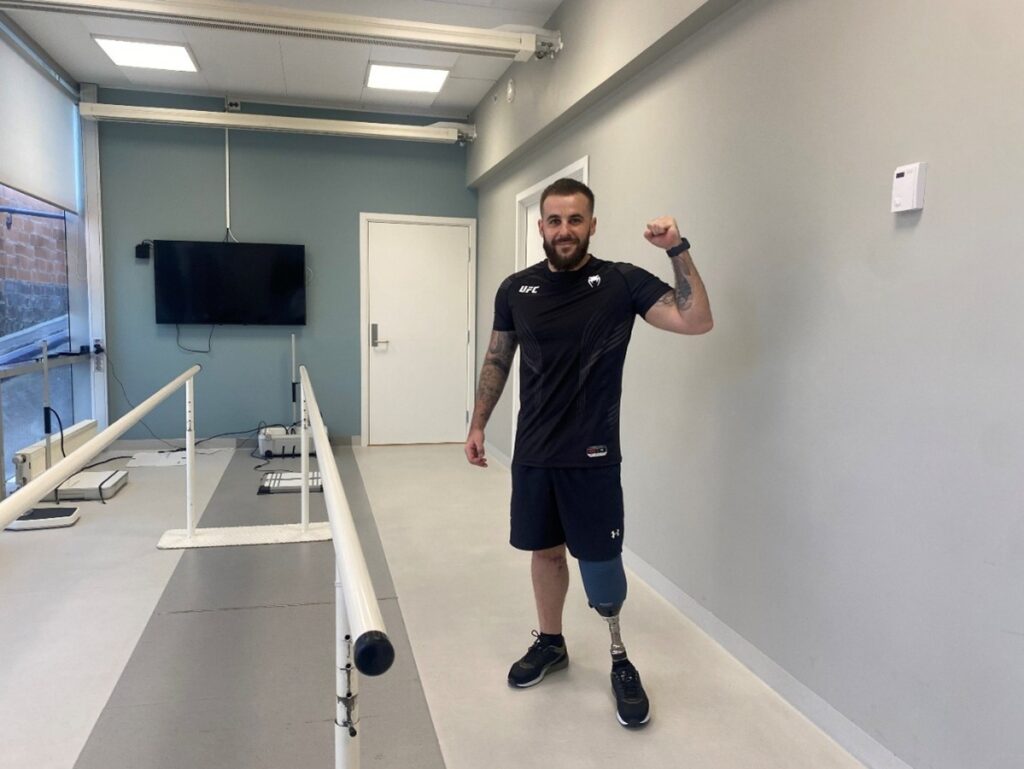
Elite athletes. Paralympians. Role models.
Embla Medical’s belief in human potential also fuels Team Össur, a group of 20 elite para-athletes, including Paralympic champions, who push the company’s technology to its limits. Their feedback drives product improvements, but their visibility also changes perceptions of disability.
“They’re our Formula One team,” says Edda. “They push our products harder than anyone and they inspire people to see what’s possible.”
Össur has led sports-prosthetic innovation for decades, with the Cheetah® running blade being the gold standard in para-athletics, worn by world record holders and multiple Paralympic medalists.
Beyond elite sport, Össur’s brand ambassadors, the everyday users of its prosthetic solutions, share their stories, raise awareness, and help normalise mobility aids around the world. Among them is Mike Coots, a shark attack survivor turned conservation advocate and acclaimed photographer.
“Partnering with Össur has been more than technology —it’s been transformational. Their innovation gave me not just a leg to stand on, but the freedom to chase waves, dive with sharks, and live life to the absolute fullest. Every step is a reminder that resilience can be engineered, and life, rebuilt beautifully,” Mike says.
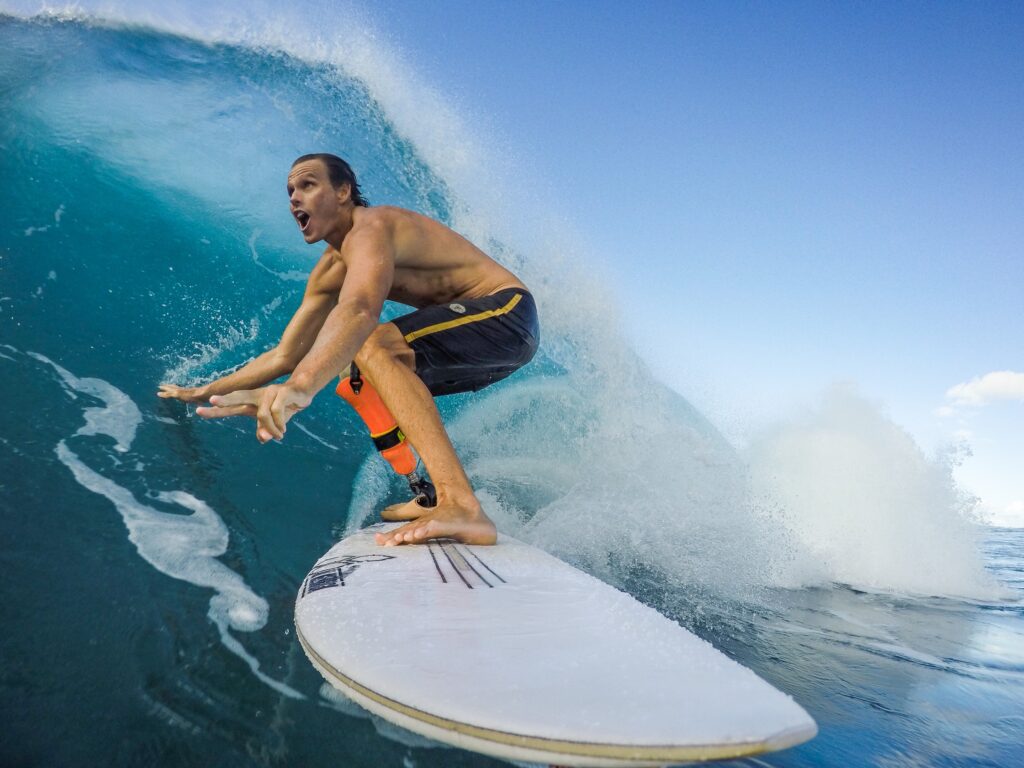
An Icelandic legacy, becoming Embla Medical
And now, back to the beginning where most stories start, but this one comes full circle.
Össur’s journey began with Össur Kristinsson, an amputee whose path from patient to pioneer laid the foundation for a global legacy of innovation. After studying prosthetics in Sweden, he invented the Iceross®, Icelandic roll-on silicone socket, the world’s first silicone liner for prosthetics replacing belts and straps with a soft sleeve and a secure click-in lock.
When Össur went public in 1999, it became one of Iceland’s largest IPO, with 8,000 Icelandic shareholders, which is about three percent of the entire nation.
The new parent organization, Embla Medical, that continues to carry forward Össur’s legacy, was established in 2024.
“We created Embla Medical to enable further growth across different segments of the chronic mobility business we operate in,” says Edda. “Össur remains our flagship prosthetics brand, College Park is also a prosthetics brand with a different value proposition, Fior & Gentz is neuro orthotics, and ForMotion is our global patient care brand. Embla Medical is like the parent giving its children space to flourish within the family.”
The name Embla comes from Norse mythology: the first woman on earth, created from driftwood, a symbol of new life and beginnings. It’s fitting for a company whose work is about movement, renewal and restoring independence.
The company is now a USD 3 billion global leader in orthopaedic technology, employing nearly 4,500 people across 40 countries. Its President and CEO since 2022 is Sveinn Sölvason. Watch his video message below.
And while Embla Medical is embarking on new beginnings, the Össur name still sits proudly on the HQ wall — the name that catches a traveler’s eye, and marks where many stories of freedom in motion begin.
